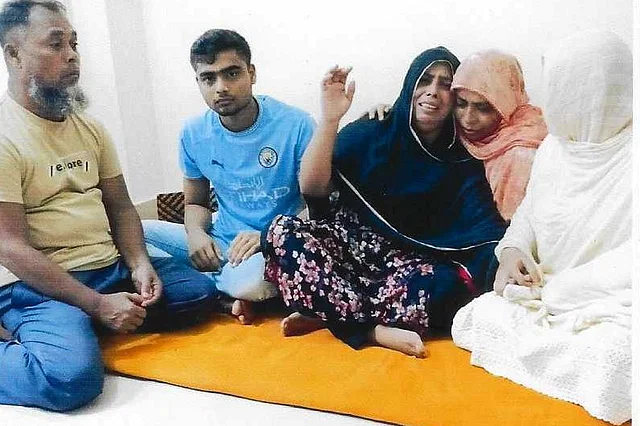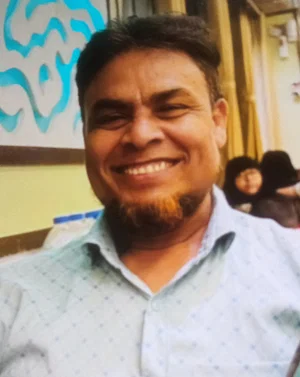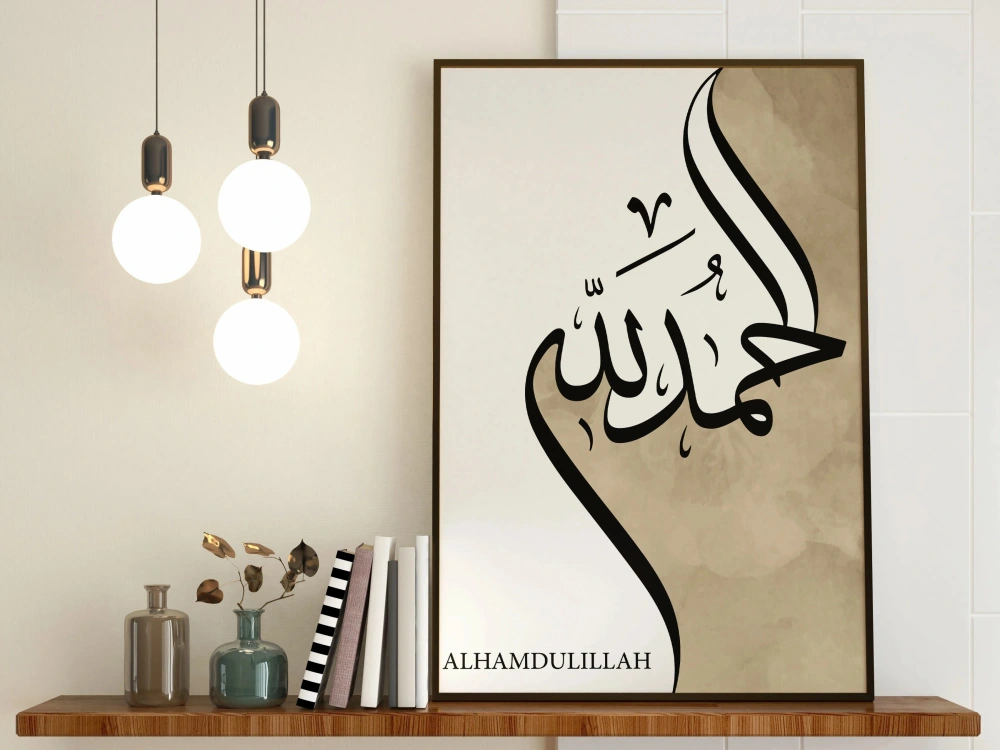“On his way home after praying at the mosque, they shot and killed my husband. Who shot him? Why? He wasn’t involved in politics, he was a very simple and innocent man. How will I now afford my children’s education? How will I run the household?” cried Jharna Begum yesterday afternoon. She is the wife of Mizanur Rahman, also known as Milon (48), who was shot and killed during the clashes in Dhaka amid the quota reform movement.
Mizanur Rahman was from Pingra village in Upadi South Union of Matlab South Upazila, Chandpur. His family lived in a rented house in the Rahmatpur Colony area of Chandpur town. Yesterday, at Mizanur’s rented house, family members were seen mourning. His wife, children, brother-in-law, siblings, and other relatives were all in tears.
Through her sobs, Jharna Begum explained that her husband had no assets. In the village, they had only a small tin-roofed house. The family relied entirely on her husband’s income to cover household expenses and their children’s education. Now, everything is lost. How she will manage the household and cover the children’s expenses is something only Allah knows.

On Sunday, July 21, Mizanur Rahman was shot and killed during the clashes in the Narda-Gulshan area of Dhaka. His body was buried in the family graveyard in Pingra village on July 22. According to relatives and local sources, Mizanur Rahman was the youngest son of the late Khalilur Rahman from Pingra village. He had four brothers and four sisters. Mizanur worked at a beauty parlor in the Narda area of Dhaka and lived alone in a rented house there. His eldest son, Md. Rabiul Alam, is in the 11th grade at a college in Chandpur, and his daughter, Farzana Akter, is in the 10th grade at a local school. His wife and children lived in a rented house in the Rahmatpur Colony of Chandpur town.
Mizanur’s cousins, retired bank officer Md. Shahjalal Tapadar and college teacher Moniruzzaman, recounted that on the afternoon of July 21, Mizanur had finished praying at a mosque in the Narda area and was walking home when the clash between police and protesters erupted nearby. Suddenly, a bullet struck him in the back. Locals tried to take him to the hospital, but he died on the way. Upon receiving the news, his family brought his body back to the village for burial.
Tearfully, Mizanur’s son, Md. Rabiul Alam, said, “What crime did my father commit to deserve being shot? My father was my everything, my whole world. I can’t express the pain of losing him. He dreamed that I would finish my education, get a good job, and become a respectable person. That dream is now almost shattered. I demand justice for my father’s death.”
Mizanur’s brother-in-law, Md. Helal Uddin, said, “My brother-in-law was a peaceful man. He wasn’t involved in politics. Accepting his death is very difficult.”










